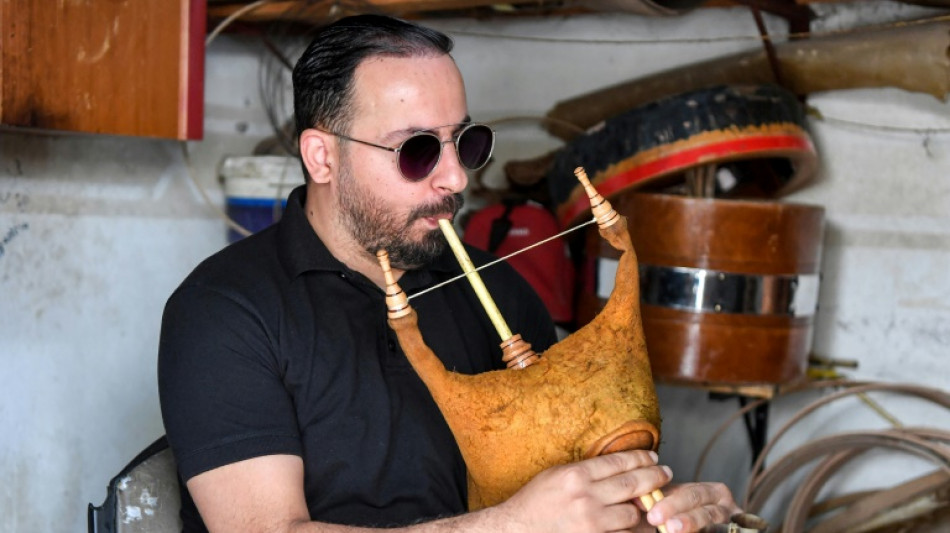
-
 Plenty of peaks, but skiing yet to take off in Central Asia
Plenty of peaks, but skiing yet to take off in Central Asia
-
UN aid relief a potential opening for Trump-Kim talks, say analysts
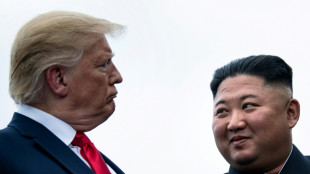
-
 Berlin Film Festival to open with a rallying cry 'to defend artistic freedom'
Berlin Film Festival to open with a rallying cry 'to defend artistic freedom'
-
Taiwan leader wants greater defence cooperation with Europe: AFP interview
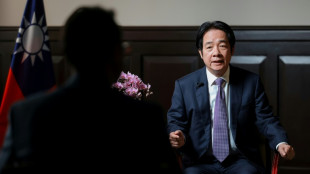
-
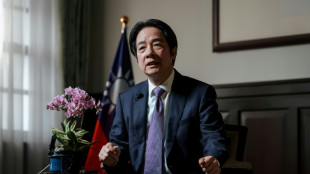 Taiwan leader warns countries in region 'next' in case of China attack: AFP interview
Taiwan leader warns countries in region 'next' in case of China attack: AFP interview
-
World Cup ticket prices skyrocket on FIFA re-sale site

-
 'No one to back us': Arab bus drivers in Israel grapple with racist attacks
'No one to back us': Arab bus drivers in Israel grapple with racist attacks
-
Venezuelan AG wants amnesty for toppled leader Maduro

-
 Scrutiny over US claim that Mexican drone invasion prompted airport closure
Scrutiny over US claim that Mexican drone invasion prompted airport closure
-
Trump to undo legal basis for US climate rules

-
 Protesters, police clash at protest over Milei labor reform
Protesters, police clash at protest over Milei labor reform
-
Dyche sacked by Forest after dismal Wolves draw

-
 France seeks probe after diplomat cited in Epstein files
France seeks probe after diplomat cited in Epstein files
-
Rivers among 2026 finalists for Basketball Hall of Fame

-
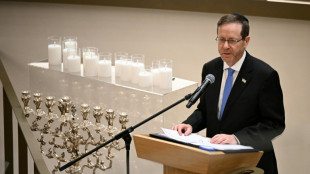 Israel president says antisemitism in Australia 'frightening'
Israel president says antisemitism in Australia 'frightening'
-
Trump orders Pentagon to buy coal-fired electricity

-
 Slot hails 'unbelievable' Salah after matching Liverpool assist record
Slot hails 'unbelievable' Salah after matching Liverpool assist record
-
Von Allmen joins Olympic ski greats, French couple win remarkable ice dance

-
 Guardiola eyes rest for 'exhausted' City stars
Guardiola eyes rest for 'exhausted' City stars
-
US pushes for 'dramatic increase' in Venezuela oil output

-
 France's Cizeron and Fournier Beaudry snatch Olympic ice dancing gold
France's Cizeron and Fournier Beaudry snatch Olympic ice dancing gold
-
Man City close on Arsenal, Liverpool end Sunderland's unbeaten home run

-
 Van Dijk sinks Sunderland to boost Liverpool's bid for Champions League
Van Dijk sinks Sunderland to boost Liverpool's bid for Champions League
-
Messi out with hamstring strain as Puerto Rico match delayed

-
 Kane helps Bayern past Leipzig into German Cup semis
Kane helps Bayern past Leipzig into German Cup semis
-
Matarazzo's Real Sociedad beat Athletic in Copa semi first leg

-
 Arsenal stroll in Women's Champions League play-offs
Arsenal stroll in Women's Champions League play-offs
-
Milei labor law reforms spark clashes in Buenos Aires

-
 Bangladesh's political crossroads: an election guide
Bangladesh's political crossroads: an election guide
-
Bangladesh votes in landmark polls after deadly uprising
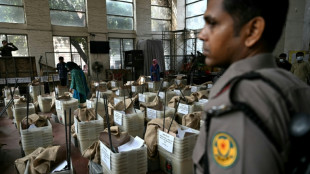
-
 US stocks move sideways after January job growth tops estimates
US stocks move sideways after January job growth tops estimates
-
Man City close in on Arsenal with Fulham cruise

-
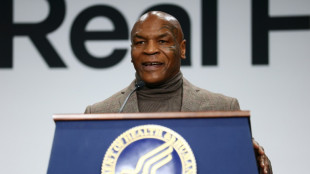 Mike Tyson, healthy eating advocate for Trump administration
Mike Tyson, healthy eating advocate for Trump administration
-
LA 2028 Olympics backs chief Wasserman amid Epstein uproar

-
 Brighton's Milner equals Premier League appearance record
Brighton's Milner equals Premier League appearance record
-
Seahawks celebrate Super Bowl win with title parade

-
 James Van Der Beek, star of 'Dawson's Creek,' dies at 48
James Van Der Beek, star of 'Dawson's Creek,' dies at 48
-
Scotty James tops Olympic halfpipe qualifiers as he chases elusive gold

-
 Swiatek, Rybakina fight back to reach Qatar Open quarter-finals
Swiatek, Rybakina fight back to reach Qatar Open quarter-finals
-
Trump tells Israel's Netanyahu Iran talks must continue
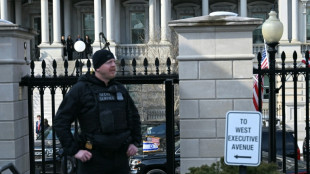
-
 England to face New Zealand and Costa Rica in pre-World Cup friendlies
England to face New Zealand and Costa Rica in pre-World Cup friendlies
-
'Disgrace to Africa': Students turn on government over Dakar university violence

-
 Simon in credit as controversial biathlete wins Olympic gold
Simon in credit as controversial biathlete wins Olympic gold
-
McIlroy confident ahead of Pebble Beach title defense

-
 US top official in Venezuela for oil talks after leader's ouster
US top official in Venezuela for oil talks after leader's ouster
-
Ukraine will only hold elections after ceasefire, Zelensky says

-
 WHO urges US to share Covid origins intel
WHO urges US to share Covid origins intel
-
TotalEnergies can do without Russian gas: CEO

-
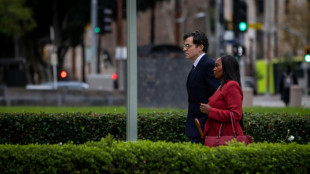 Instagram CEO denies addiction claims in landmark US trial
Instagram CEO denies addiction claims in landmark US trial
-
Israel's Netanyahu pushes Trump on Iran
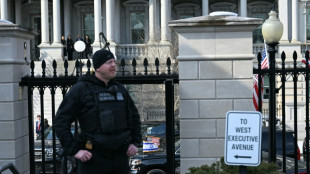

New life breathed into Tunisia's bagpipes
At his workshop in Tunisia's capital, Khaled ben Khemis pieces together a type of bagpipe once banned from airwaves but now embraced by artists infusing its sound into new musical styles.
Known as a "mizwad", it "must be made from natural elements", the 50-year-old craftsman said, taking two cow horns and connecting them to pieces of river reed and a goatskin bag for producing the musical notes.
He has made the instrument for 30 years.
Most musical historians agree the mizwad first appeared in Tunisia at the beginning of the 20th century and was confined to working-class suburbs for decades before growing in stature to now be incorporated into other genres, including hip-hop and jazz.
The increased popularity has seen commercial manufacturers turning out mizwads.
But modern variations that replace natural materials with plastic "do not have the soul of those made with reeds", ben Khemis said of the new models, which cost up to 1,000 dinars ($320).
He acknowledged the instrument has, however, evolved.
"Before we played out of tune, and we made it in a hurry," he said.
- Bad image -
The mizwad spawned its own musical style that was frowned upon by authorities for associations with alcohol, drugs and prison -- where many songs were composed.
"It was a musical genre whose reputation was bad just like those who played it," said Noureddine Kahlaoui, a self-described mizwad "activist" aged in his seventies.
"Criminals and those on the run were always found by authorities at mizwad concerts," said the popular artist who has played the instrument for 40 years.
The songs address "daring subjects criticising society, politics, migration and racism", said Rachid Cherif, a musicology researcher.
Mizwad concerts are traditionally held in poor and marginalised neighbourhoods, particularly for weddings.
Song lyrics can be abrasive and considered rude, drawing resentment from families and sometimes triggering brawls at parties.
These elements combined to see Tunisia's authorities ban the mizwad on public television channels until the 1990s -- leading folk artists to undertake a restoration of the instrument's image.
In July 1991, a "Nouba" concert that mixed folk, popular and Sufi music was staged in Carthage's ancient Roman amphitheatre and broadcast on television, marking a fundamental step in the mizwad's rehabilitation.
But some snobbery toward the instrument remains.
In 2022, officials from Tunis's municipal theatre refused to allow a mizwad show, deeming the institution too prestigious to host such a concert.
- Jazz and rap -
"Despite the criticism, we have worked so that this original heritage can progress," said Kahlaoui, who describes the mizwad's evolution as "dazzling".
For the researcher Cherif, "the mizwad occupies a prominent place in the history of Tunisian popular music" due to its fundamental identity. It "consolidates the idea of belonging to a nation, an ethnic group and a culture", he said.
In recent years, a new generation of musicians has taken up the instrument, mixing it with contemporary genres offering more room for creativity such as rap and world music.
"Thanks to what I learnt during my studies, I understood what could be done with this instrument," said Montassar Jebali, 32, who plays mizwad in several jazz and hip-hop ensembles.
Jebali studied Arabic music at the Higher Institute of Music of Tunisia, where the mizwad is not taught.
"I used my academic knowledge to find out which instrument it went well with," he said.
Jebali's concerts and those of other contemporary mizwad players have been popular with young Tunisians.
"The mizwad is gaining ground" and will have its international breakthrough, he said. "Perhaps not tomorrow, but after tomorrow."
G.AbuHamad--SF-PST




